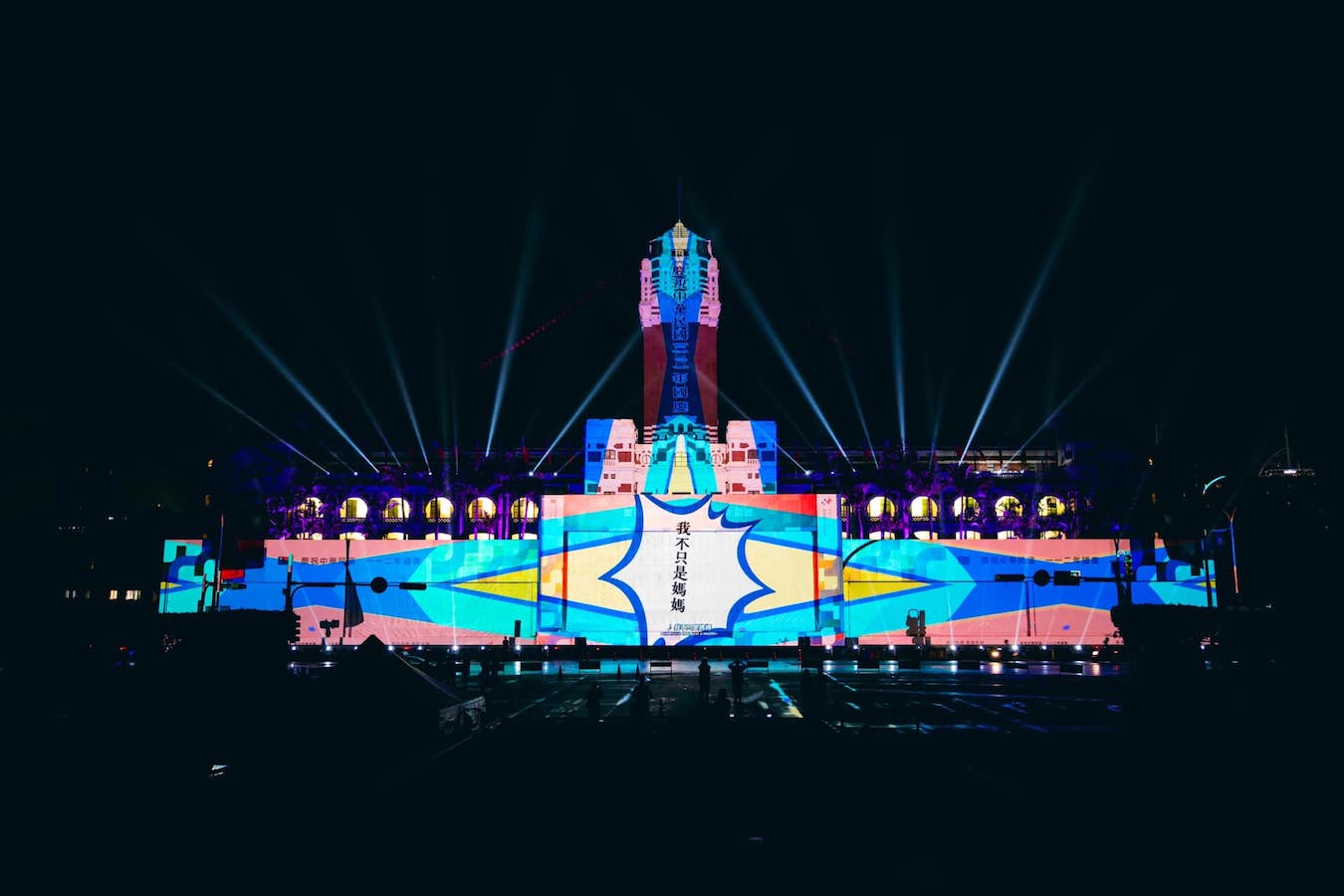by Brian Hioe
語言:
English
Photo Credit: Tsai Ing-wen/Facebook
TAIWANESE PRESIDENT TSAI ING-WEN’S National Day address yesterday had few surprises. More generally, Tsai touted her accomplishments ahead of next year’s elections. With Tsai having served two full terms, this will be the last National Day address of Tsai’s tenure. Taiwan will go to the polls to decide its next president in January.
It may not be surprising that Tsai touted Taiwan’s response to COVID-19 early in the speech, with Taiwan hailed as having one of the world’s most successful responses to the pandemic. Taiwan went for more than a year without having to undergo lockdowns as the rest of the world did. Nevertheless, this has continued to be a matter of political contestation in Taiwan, with the KMT framing the Tsai administration as having bungled Taiwan’s COVID-19 response with regard to vaccines and other matters.
 Photo credit: Tsai Ing-wen/Facebook
Photo credit: Tsai Ing-wen/Facebook
To this extent, a significant amount of Tsai’s speech was emphatic on military matters. Namely, Tsai referenced the launch of Taiwan’s first domestically manufactured submarine, the Narwhal, as another key accomplishment. This was framed as a bipartisan accomplishment, in that successive presidents had hoped to develop a submarine for Taiwan. This was framed as an advance in asymmetric warfare capabilities for Taiwan, though the emphasis on the submarine has seen some criticism from experts that suggest it is precisely not a step in the direction of asymmetric warfare, but a “big ticket” item that Taiwan has spent a great deal on for optics yet which represents resources that could be better spent elsewhere.
Tsai went on to thank members of the public, touting pension reform and increases in the minimum wage as accomplishments, even if the former caused controversy among public servants, members of the military, and others. Although the Tsai administration has been criticized over its failure to build as many units of social housing as it promised in previous campaigns, Tsai still framed this as something the DPP has made progress on, referencing calls for housing justice from society.
The DPP potentially faces retaliation from voters over its perceived failure to grow Taiwan’s economy, with the view that economic growth has not trickled down to members of the Taiwanese public at large, and this is likely why Tsai would tout the DPP as, in fact, having had a successful economic track record in her eight years in office. Likewise, Tsai framed the DPP as having grown key strategic industries in Taiwan, while emphasizing that the power grid would be stable in the upcoming year.
Lastly, Tsai devoted a great deal of her speech to driving home the point of increased connections between Taiwan and the international world. Tsai’s tenure, after all, has seen Taiwan go from a place of relative international obscurity to increased discussion of it as a potential geopolitical flashpoint. Moreover, there is increased international awareness of the key place that Taiwan plays in global supply chains, such as with regard to its key place in semiconductor supply chains. Tsai brought up strengthened relations with the US and Taiwan, referencing how Taiwan stood in solidarity with Ukraine after the Russian invasion.
 Photo credit: Tsai Ing-wen/Facebook
Photo credit: Tsai Ing-wen/Facebook
To this extent, Tsai emphasized that Taiwan hopes for dialogue with China. This is not a new sentiment from the Tsai administration either, but ahead of elections next year, the DPP has sought to emphasize its moderate, pro-status quo position, so as to emphasize that it is not the DPP that is provoking China. In particular, the KMT has continued to frame the DPP as having deteriorated relations with China, referencing its historically pro-independence stance–even if the DPP has backed away from this under the Tsai administration.
The KMT has also doubled down on claims that the DPP is eroding away at the institutions of the ROC, by way of efforts to foment “cultural Taiwanese independence” and “de-Sinicize.” As such, key members of the KMT such as former president Ma Ying-jeou, presidential candidate Hou You-yi, and party chair Eric Chu were not present at National Day commemorations, instead holding their own National Day celebrations.
Indeed, the ROC was referenced a number of times in Tsai’s speech, another gesture to how Tsai has led the DPP away from its historical anathema to the ROC, so as to avoid giving China pretext to react. This was a significant aspect of Tsai’s speech insofar as Tsai made specific references to the history of the ROC in Taiwan in a way that she had not in the past. Nevertheless, Beijing is probably not the main audience for Tsai’s comments–it is the Taiwanese electorate ahead of next year’s elections.

